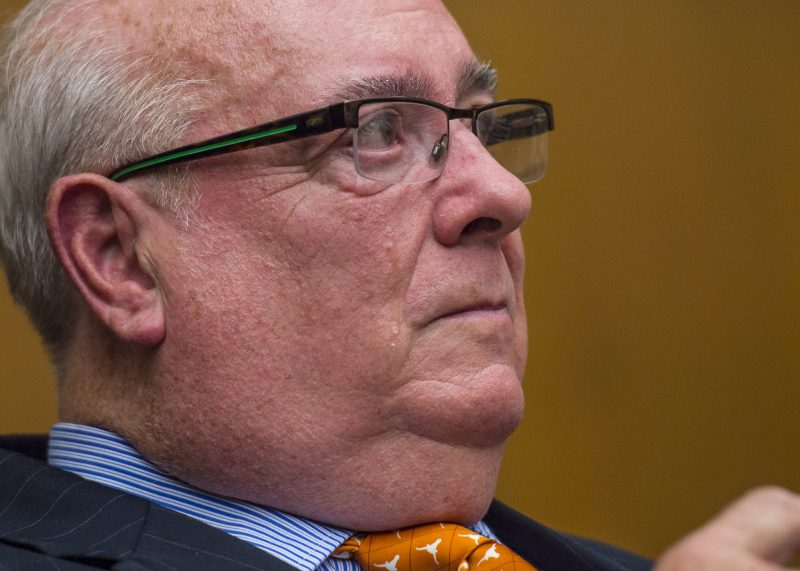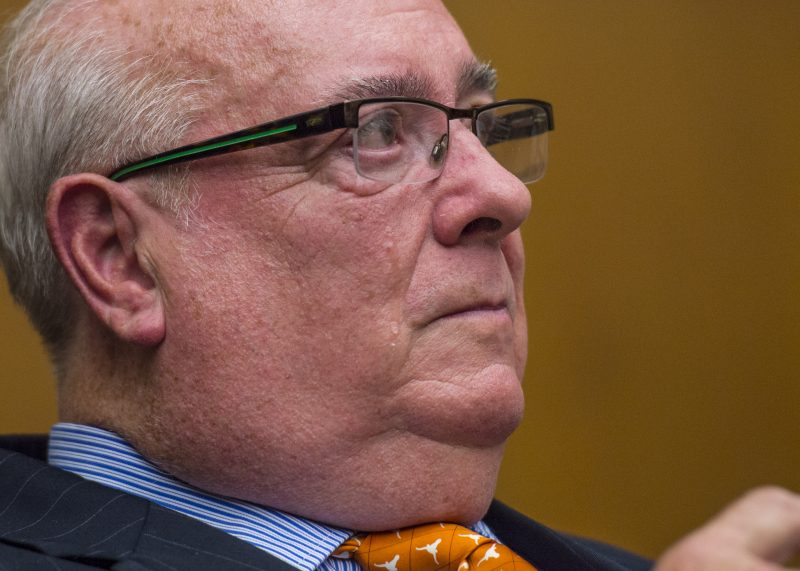
A Republican-appointed judge said he plans to send a written response to supporters of a Jan. 6 rioter who claimed that he did nothing wrong, warning the man’s friends and family members that justifying political violence risks further violence in a “vicious cycle” that “rots republics.”
In an unusual step, U.S. District Judge Royce C. Lamberth filed on the public docket the statement he prepared to sentence Taylor James Johnatakis to more than seven years in prison. Even more atypically, he said he would order his clerk to mail copies to 20 people who wrote letters supporting the defendant — the first time he had done so in his 37-year career — to explain his reasoning.
“January 6 must not become a precedent for further violence against political opponents or governmental institutions,” Lamberth wrote. “This is not normal. This cannot become normal. We as a community, we as a society, we as a country cannot condone the normalization of the January 6 Capitol riot.”
The judge’s move is the latest in a wider public push by federal judges in Washington to counter what polling shows is an uptick in public acceptance of the violent breach of the U.S. Capitol on Jan. 6, 2021, fueled by former president Donald Trump’s escalating rhetoric casting defendants as “political prisoners” and “hostages” who did nothing wrong. Trump has pledged to pardon Capitol riot defendants, including those who assaulted police.
Johnatakis did not directly address the judge’s comments but told Lamberth after his sentence: “I do honor what you have done for the country, and what you’ve done in your career.” In an interview Thursday, Johnatakis’s father — who gave his name as J. Johnatakis — said he did not condone violence and appreciated the judge’s response to his letter for his son. But he said he believes the government is punishing conservatives at the Capitol on Jan. 6 more harshly than liberals who committed violence during racial justice protests in 2020.
“I think a lot of it was overblown, especially when you compare it to other things,” he said.
In federal court in D.C. on Wednesday, Lamberth said he took “no great pleasure in locking up defendants who led good lives until their actions on January 6, 2021,” but explained, “In our system of justice, we punish people not for their overall character, but for their actions.”
The judge — a Texas-born son of an Army pool mechanic who served in Vietnam as an Army lawyer and who was appointed to the bench in 1987 by Ronald Reagan — said Johnatakis, a 40-year-old from Washington state, appeared to show no true remorse for what he did. The judge also said he was struck that few of his supporters “seem to know what he actually did.” One wrote that the defendant “never would” do anything violent and another said he got “caught up” in the crowd, the judge said.
“In fact it was Mr. Johnatakis himself who organized protesters to violence that day,” Lamberth said. “Mr. Johnatakis was a leader. He knew what he was doing that day.”
One day before the riot, trial evidence showed, Johnatakis posted on social media, “Burn the city down. What the British did to DC will be nothing.”
As he marched to the Capitol the next day, he posted video of himself saying, “We’re walking over to the Capitol right now, and I don’t know, maybe we’ll break down the doors.”
There, he made his way to the front of a mob. Yelling through a megaphone he brought, Johnatakis organized a charge against police, shouting, “One, two, three, go!” and getting rioters to raise a metal bike rack barricade and slam it against police. The assault was confirmed on body-camera video and by officers who said they were seriously injured and feared for their lives.
“Mr. Johnatakis and the others then raised the barriers higher until they were about head-level with the officers, so that the mob could brawl with the officers without the barriers getting in the way,” Lamberth wrote in the filing.
The attack permitted rioters to overwhelm the final police line defending a staircase on the southwest side of the Capitol and to breach the building immediately afterward, forcing the evacuation of the Capitol.
As he left, Johnatakis boasted on video, “We probably would have murdered a few of” the lawmakers “had we seen exactly who they were.”
Johnatakis apologized to his police victims at trial. But his message changed following his conviction in November on felony counts of obstruction of an official proceeding, rioting and assaulting police as well as four misdemeanors, Lamberth said. In a YouTube video, the defendant said, “We did nothing. We touched a gate. We got pepper-sprayed. We moved back. That was it,” adding “Everything about January 6 is just overblown.”
Johnatakis, a self-employed installer of septic systems and father of five who was supported by family members in attendance, represented himself at trial with an attorney on standby. He invoked anti-government “sovereign citizen” arguments, asking the court after sentencing, “Does the record reflect that I repent in my sins?”
Lamberth’s remarks came one week after another U.S. trial judge in Washington, Reggie B. Walton, denounced Trump’s social media attacks against the judge presiding over his hush money trial in Manhattan and his daughter, calling them assaults on the rule of law that could lead to violence and tyranny. Lamberth previously decried the mainstreaming of “meritless justifications of criminal activity” by Republican politicians defending the actions of Jan. 6 rioters, saying: “I have been dismayed to see distortions and outright falsehoods seep into the public consciousness.”
Five people died in the Jan. 6 attack or in the immediate aftermath, as pro-Trump rioters injured more than 100 police officers, ransacked Capitol offices and forced lawmakers to evacuate. About 486 defendants have been charged with assaulting or impeding officers or employees, including 127 charged with using a deadly or dangerous weapon or causing serious bodily injury.
Lamberth’s remarks appeared to be part of an ongoing civics lesson by judges to a nation deeply split over the meaning of and lessons from Jan. 6. Lamberth stressed that the First Amendment enshrines the American public’s rights to freedom of speech and protest, but it “obviously does not give anyone the right to assault the police.”

